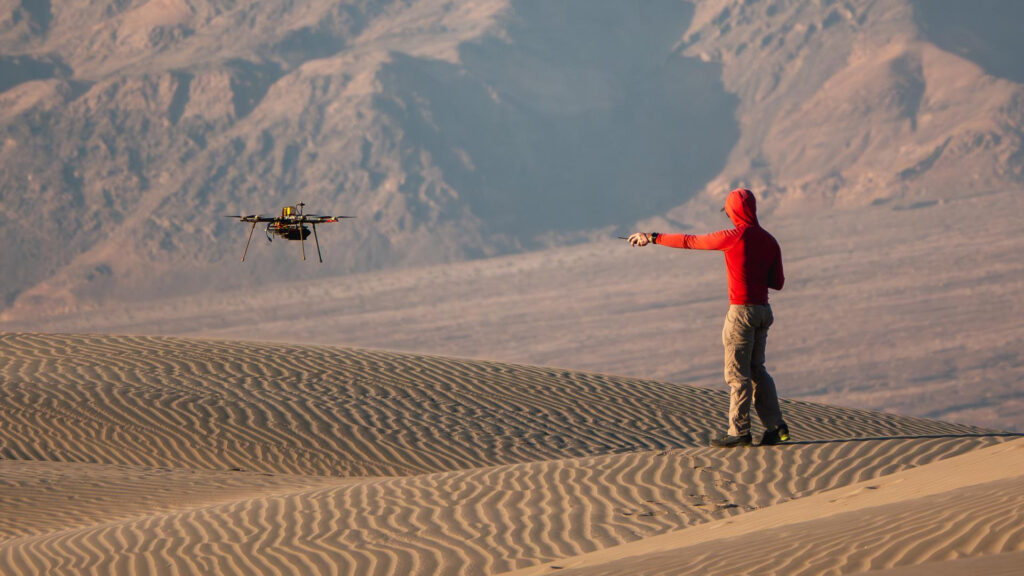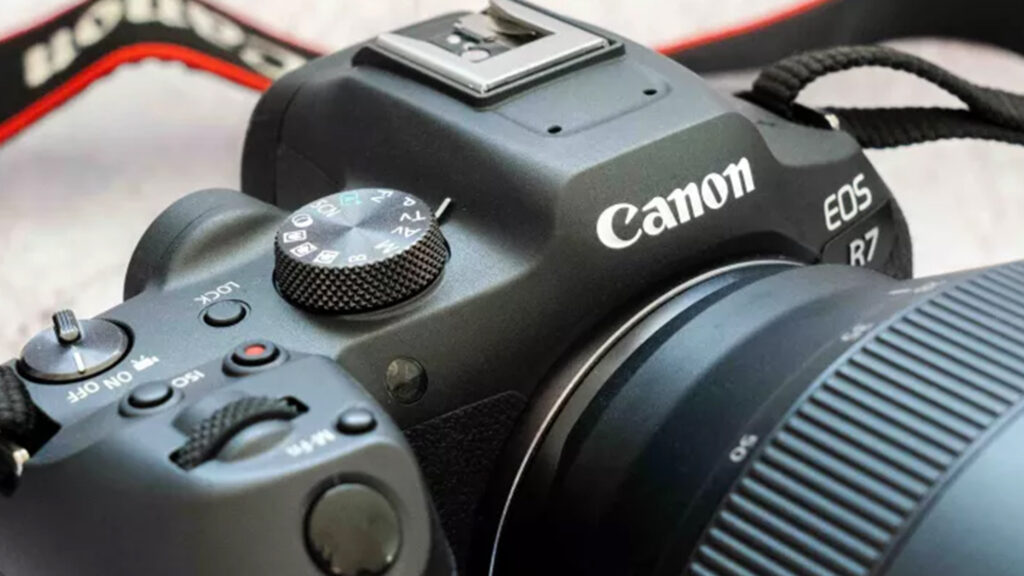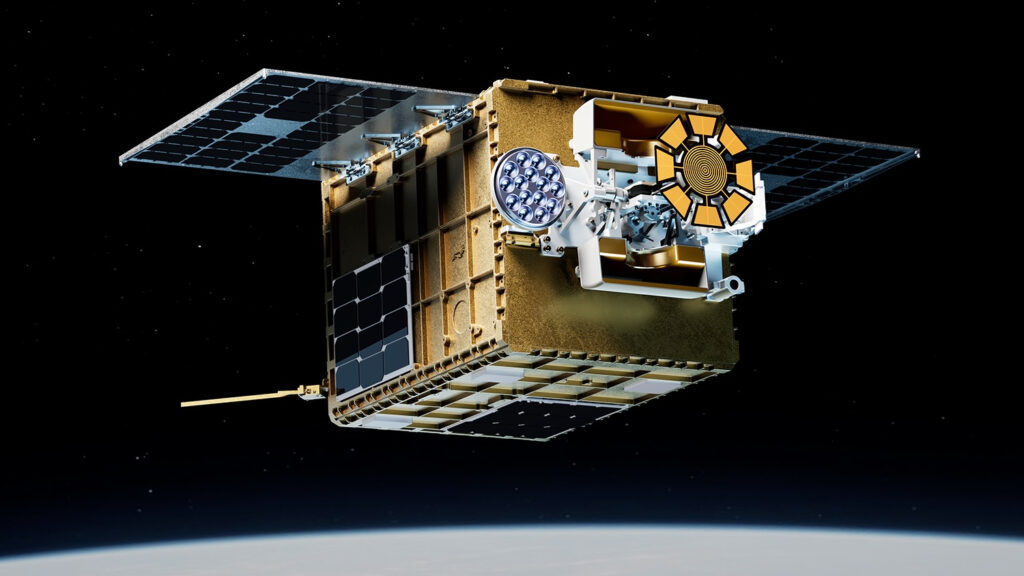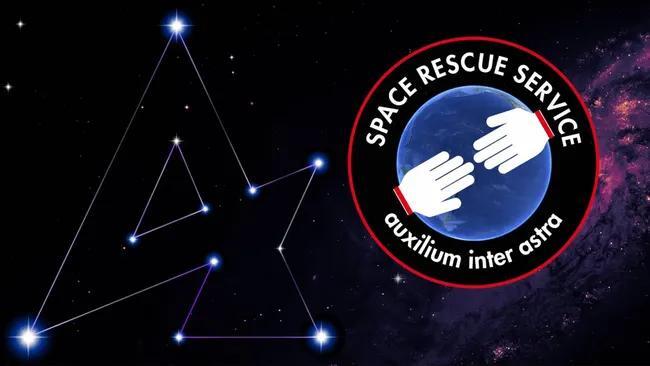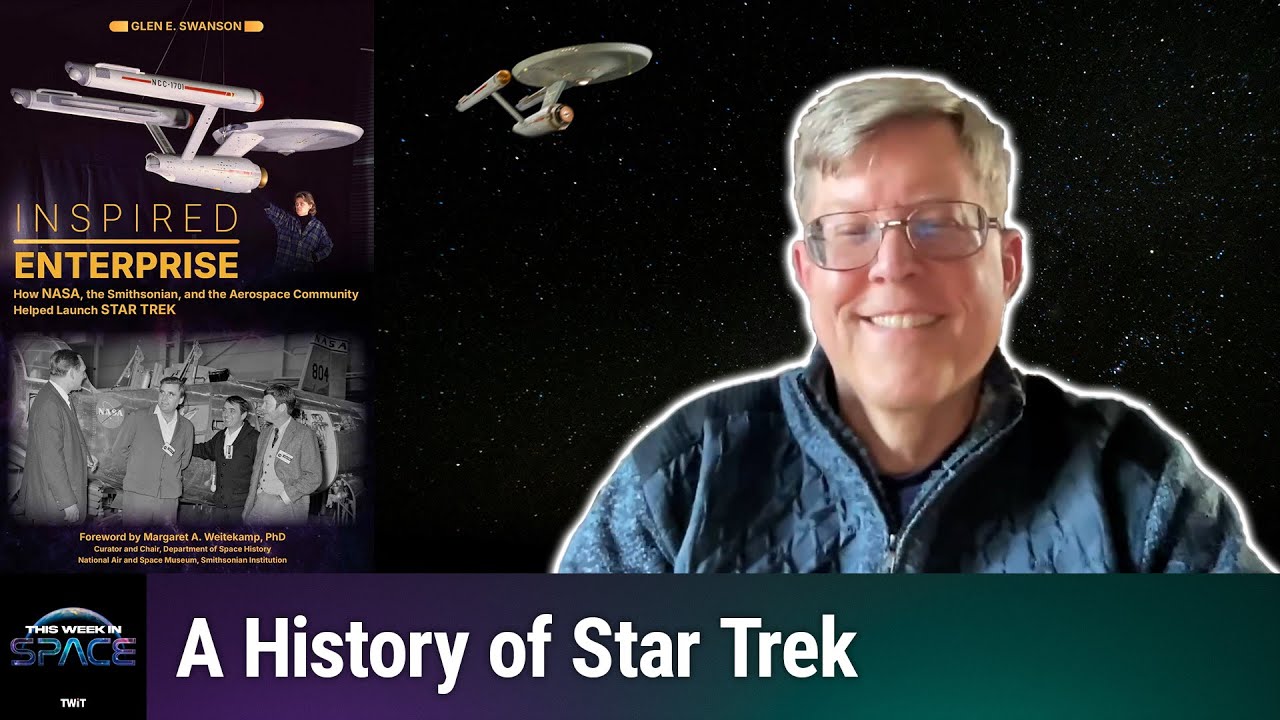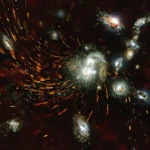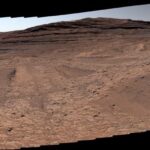Now Reading: A ‘rampaging lion’ nebula roars to life in a stunning deep-space photo
-
01
A ‘rampaging lion’ nebula roars to life in a stunning deep-space photo
A ‘rampaging lion’ nebula roars to life in a stunning deep-space photo
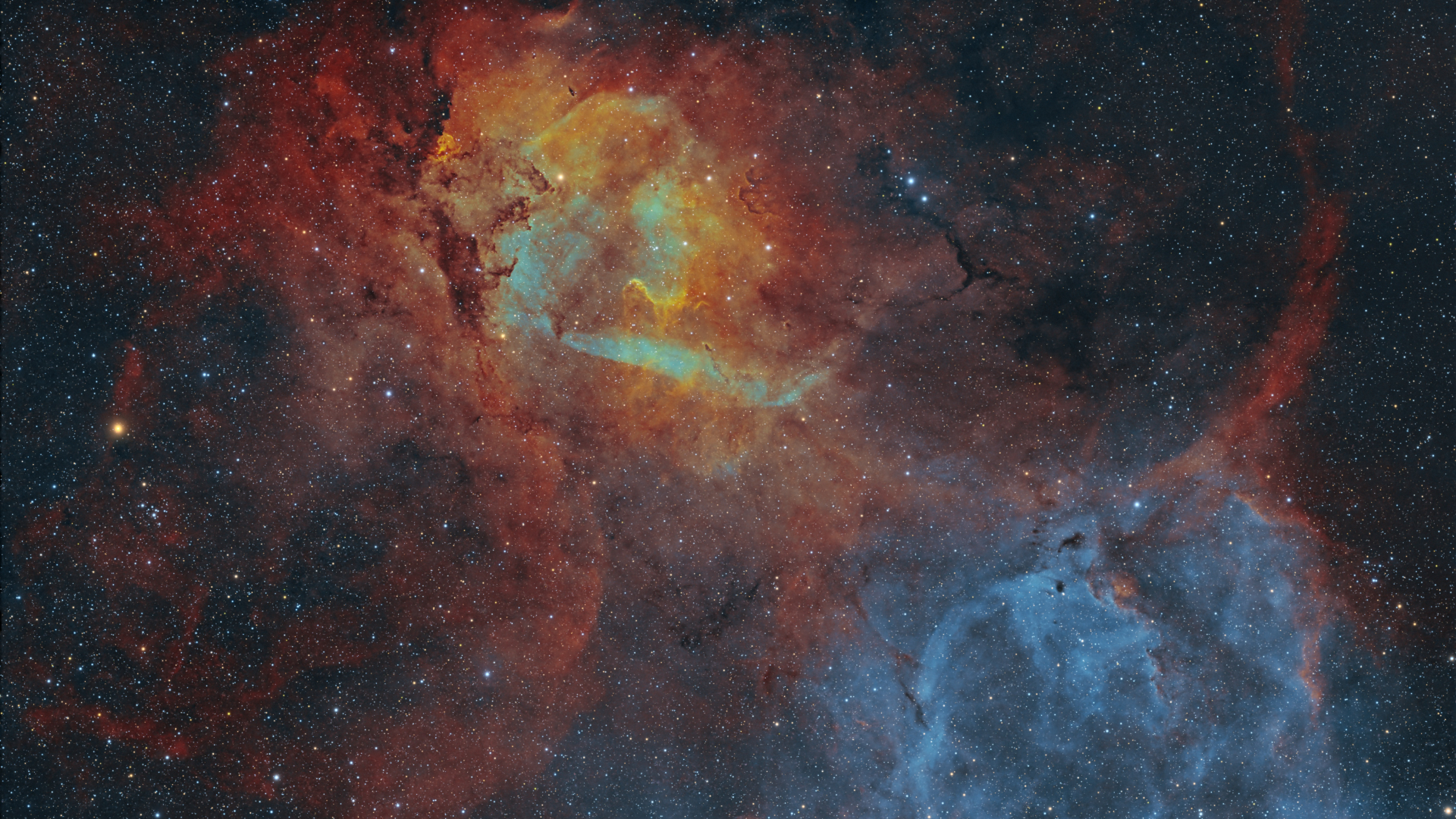
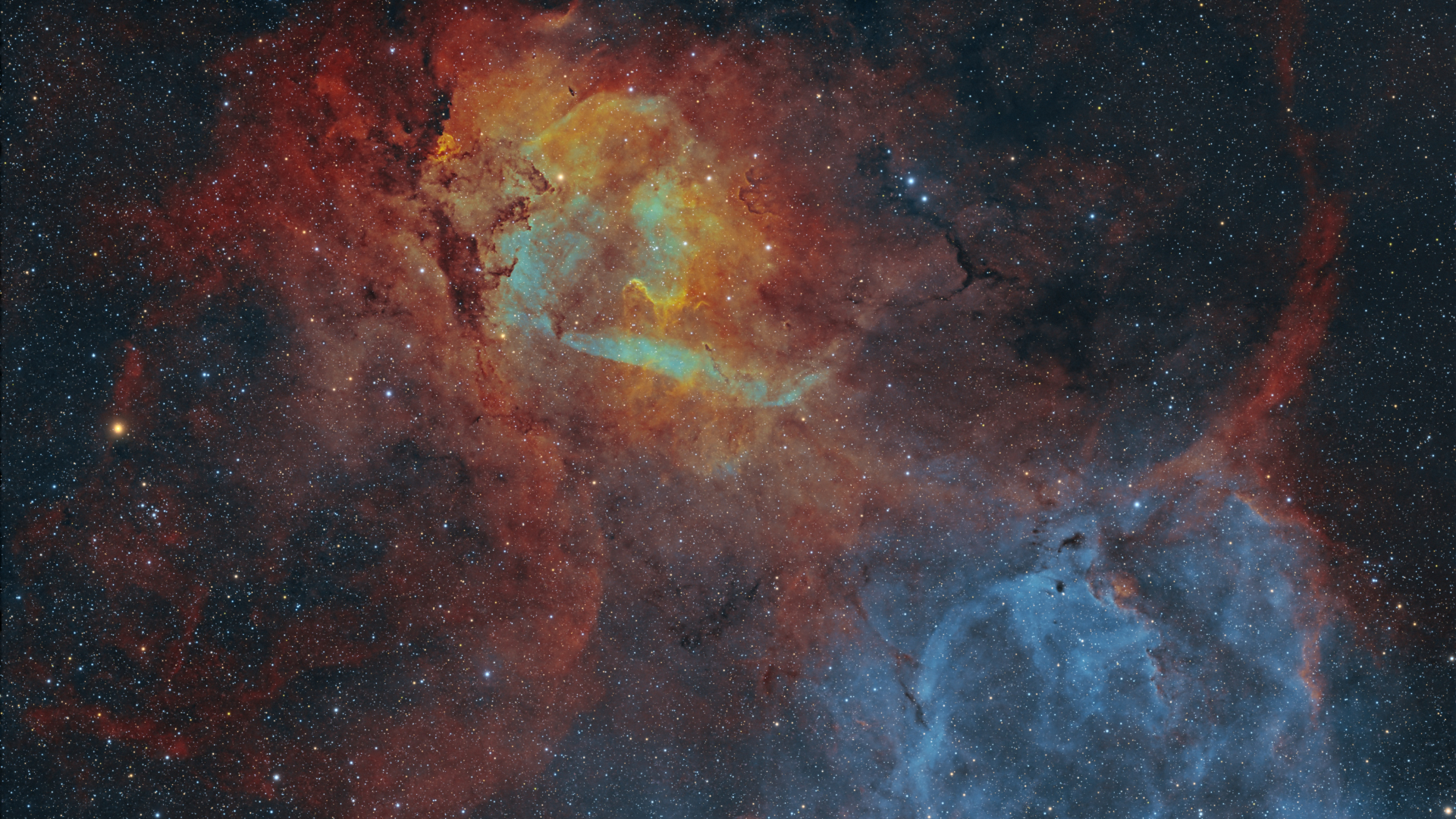
A nebula takes on the appearance of a rampaging lion in a new deep space vista captured by astrophotographer Ronald Brecher under a near-full moon from his home in Ontario, Canada, in October earlier this year.
ZWO ASI533MC Pro
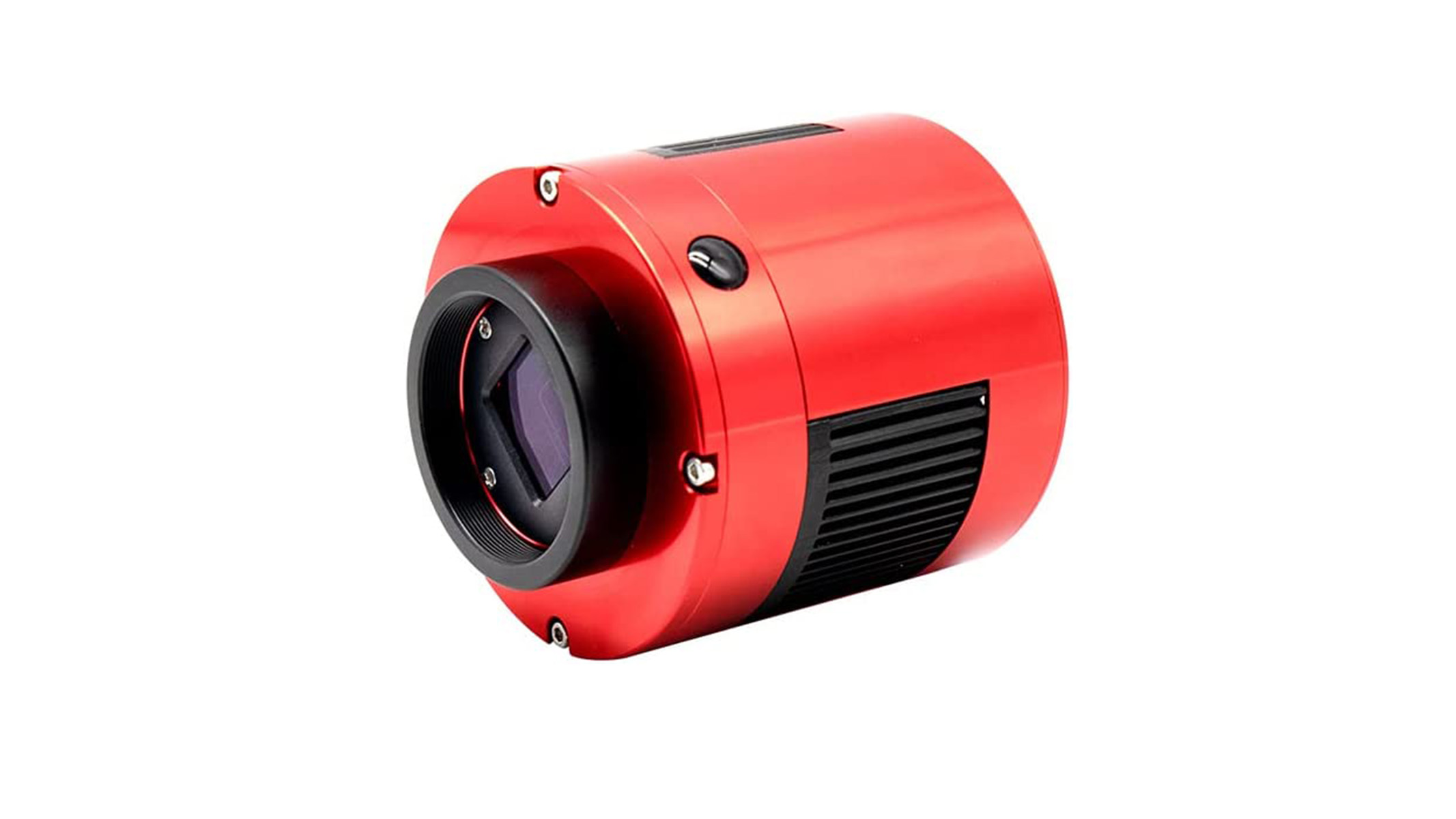
Want to capture a nebula shining thousands of light-years from Earth? The ZWO ASI533MC Pro camera is the best dedicated astro camera out there, in our opinion. Check out our ZWO ASI533MC Pro review for a more in-depth look.
The evocative scene captures the swirling gas of the nebula Sh2-132, known as the Lion Nebula, located around 10,000 light-years from Earth in the constellation Cepheus, which you can find high above the northern horizon in the hours following sunset in November.
Within the nebula are two gigantic stars, each of which boasts a mass equivalent to 20 suns, the radiation from which has ionized and sculpted the vast cloud of interstellar dust and gas, causing it to glow with its own eerie light.
It took Brecher a little over 35 hours to capture the nebula using his Sky-Watcher Esprit 70 EDX refractor and astronomy camera, along with a host of peripherals and astronomy filters, each designed to capture a specific part of the light spectrum
Brecher used the same observational data to create two different, visually striking versions scene. For one image, he opted to use the Hubble palette in the post-processing stage, which assigned a color to each of the specific wavelength bands of light collected by the astronomy filters to recreate the iconic look of images produced by the space telescope. The Foraxx palette, meanwhile, adopts a more dynamic approach to interpreting and combining the light data, producing a richer, more dramatic color rendering
Want to capture breathtaking images of the night sky for yourself? Then be sure to check out our roundups of the best cameras and lenses for astrophotography, along with our guide to capturing the night sky with a DSLR.
Editor’s Note: If you would like to share your astrophotography with Space.com’s readers, then please send your photo(s), comments, and your name and location to spacephotos@space.com.
Stay Informed With the Latest & Most Important News
Previous Post
Next Post
-
 01Two Black Holes Observed Circling Each Other for the First Time
01Two Black Holes Observed Circling Each Other for the First Time -
 02From Polymerization-Enabled Folding and Assembly to Chemical Evolution: Key Processes for Emergence of Functional Polymers in the Origin of Life
02From Polymerization-Enabled Folding and Assembly to Chemical Evolution: Key Processes for Emergence of Functional Polymers in the Origin of Life -
 03Astronomy 101: From the Sun and Moon to Wormholes and Warp Drive, Key Theories, Discoveries, and Facts about the Universe (The Adams 101 Series)
03Astronomy 101: From the Sun and Moon to Wormholes and Warp Drive, Key Theories, Discoveries, and Facts about the Universe (The Adams 101 Series) -
 04True Anomaly hires former York Space executive as chief operating officer
04True Anomaly hires former York Space executive as chief operating officer -
 05Φsat-2 begins science phase for AI Earth images
05Φsat-2 begins science phase for AI Earth images -
 06Hurricane forecasters are losing 3 key satellites ahead of peak storm season − a meteorologist explains why it matters
06Hurricane forecasters are losing 3 key satellites ahead of peak storm season − a meteorologist explains why it matters -
 07Binary star systems are complex astronomical objects − a new AI approach could pin down their properties quickly
07Binary star systems are complex astronomical objects − a new AI approach could pin down their properties quickly












